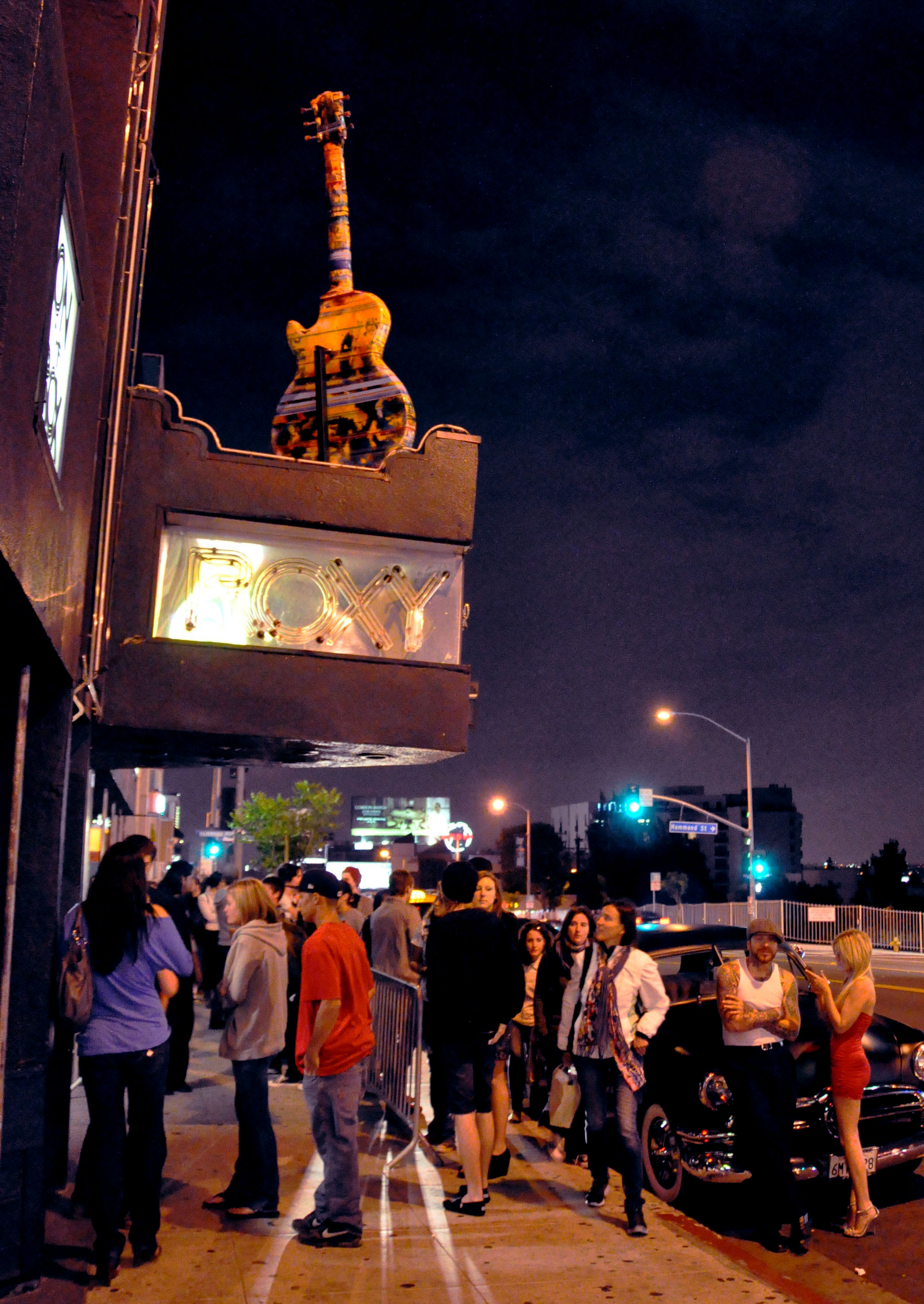It’s 8:45 p.m. at the Roxy on a Saturday night. A line of people wearing Ed Hardy and Affliction shirts adorn the sidewalk, waiting to see a band they probably won’t remember. A tattooed man in a wifebeater leans against his 1950 Ford, a pink and blond piece of arm candy stumbling in high heels at his side. This scene vividly blends the old territory and new blood of the Sunset Boulevard music scene these days.
Third-year ethnomusicology student Wyatt Stone said he was excited to play the Roxy, where his idol Bruce Springsteen had performed. While venues on the Sunset Strip don’t carry the same prestige as they used to ““ because practically anyone with enough money or friends to buy tickets can play at them ““ they’re still something musicians can put on their rock “˜n’ roll resumes.
Jordan Calhoun, a fifth-year sociology student and vocalist for Spring Sing band no insurance, played the Whisky A Go Go and said his grandpa was proud that his grandson was playing on the same stage where he had seen Jimi Hendrix perform nearly 50 years ago.
At that time, The Doors were the house band for the Whisky. But when Jim Morrison sang the Oedipal lyrics to “The End,” they were fired. Nowadays, bands can get away with dressing up in Nazi uniforms and shooting audience members with red liquid out of water guns, as third-year ethnomusicology student and guitarist Justin Lucas remembered happening one night he was there.
It’s quite a different scene from when the first caged go-go dancers in miniskirts and white boots danced in suspended cages. In those days, The Who and the Kinks played at the Whisky A Go Go, which was a beacon of the British invasion.
Lucas said the rock “˜n’ roll romance wore off the third time he played the Whisky when he experienced the venue’s thirst for money, which he says worsened treatment of the bands.
He was not even allowed to sit at a table before his band performed unless he was willing to pay hundreds of dollars.
But money-hungry venues don’t stop people like Calhoun from selling tickets at cheaper prices so more people will come, and having a big crowd means more to some musicians than a large paycheck.
Gal Bushy, a fourth-year anthropology student and a guitarist for the band BushyStock, said his bandmate, vocalist Charles Feigelstock, found promoters on Craigslist looking for people to play the Viper Room. The band had five days to sell 15 $10 tickets.
Despite the money and the difficulty of getting from UCLA to Sunset, they sold more than twice that amount and made a sizable profit.
While Bushy enjoyed the intimate crowd there, Calhoun said he prefers the big stage in the Key Club, where Van Halen and Guns N’ Roses once played. Third-year English student Brennan McNally prefers the wooden acoustics of the Troubadour (which he said has the golden capacity of 500 people, neither too big nor too small) to the harsh metal echoes of the Key Club.
As the owner of Underdog Management, McNally uses his analytical ear during shows to survey venues with a professional perspective. He also said he finds hope in the Troubadour’s booking of relevant and rising musicians.
Bushy said that although music lovers often make the pilgrimage to the Strip, many venues there exploit their history through overpriced tickets. But he still enthusiastically retells stories of Jim Morrison walking down the boulevard and taking any drugs people gave him, and Led Zeppelin having its own table in the back of the Rainbow Bar and Grill right next to the Roxy.
Though John Lennon’s psychedelic Rolls Royce is no longer parked out front, the Rainbow is still a hot spot for some musicians: McNally said he sees Lemmy from Motörhead hitting Jack Daniel’s and video poker machines there regularly.
For McNally, the spirit of the Strip is best captured in ’80s glam metal, a type of music that the House of Blues’ house band Steel Panther parodies by using antics such as inviting girls onstage to flash them in exchange for beer.
The Sunset Strip Music Festival also brings the ’80s back to the Strip, booking Slash in 2010 and Mötley Crüe this year.
A few blocks of the Strip are blocked off so festival-goers can roam freely in and out of the historic venues.
Though Sunset isn’t what it used to be to musicians and fans, it still has a history that will most likely continue to draw music pilgrims from around the world.
Do you think Sunset strips musicians of dignity and fans of money? Email Cosgrove at
scosgrove@media.ucla.edu.
